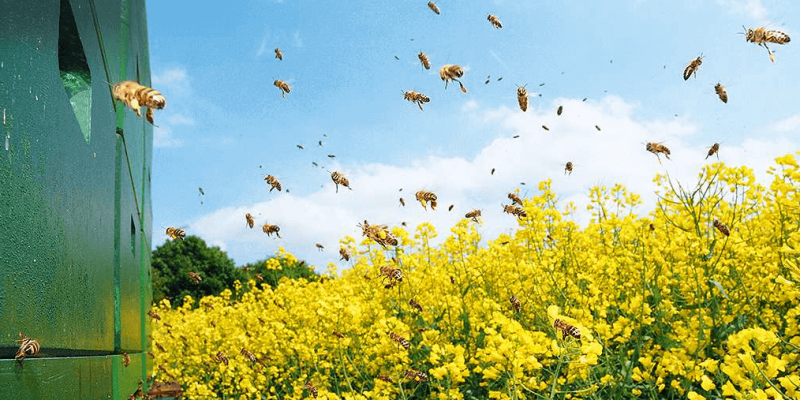More than a third of Scottish arable farmers say the ban on neonicotinoids has resulted in greater damage to oilseed rape (called rapeseed in the US) crops.
Growers are currently unable to use neonicotinoids, which are normally present on seed dressings for oilseed rape, due to concerns they are harmful to bees.
A Scottish Government survey about the impact of the restrictions on Scottish winter oilseed rape (WOSR) crops revealed that although damage to crops during 2016 was minimal, more than a third of growers felt the lack of the seed dressing had led to greater crop damage.
A report published following the survey said: “A small proportion of growers stated that the restrictions will reduce the likelihood of their growing WOSR in future. However, other growers appear to be relatively unaffected and it is clear that the impact of the restrictions is less severe in Scotland than in other regions of the UK.”
It said Scottish growers were less affected by the neonicotinoids ban than their counterparts south of the border due to lower pest pressure and resistance levels to the approved foliar insecticides available.
The GLP aggregated and excerpted this blog/article to reflect the diversity of news, opinion, and analysis. Read full, original post: One third of Scottish farmers blame neonicotinoid ban for crop damage































